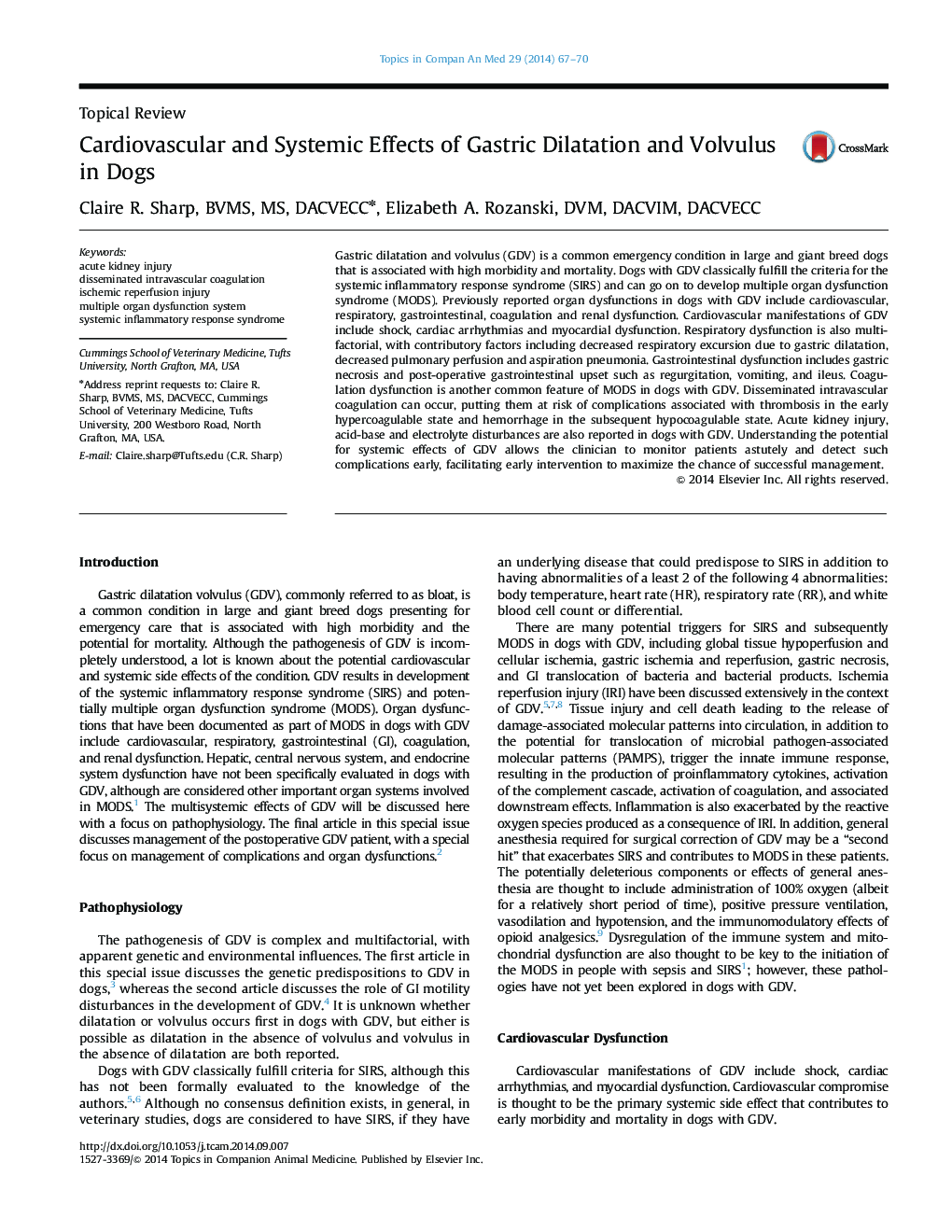| Article ID | Journal | Published Year | Pages | File Type |
|---|---|---|---|---|
| 2401099 | Topics in Companion Animal Medicine | 2014 | 4 Pages |
Gastric dilatation and volvulus (GDV) is a common emergency condition in large and giant breed dogs that is associated with high morbidity and mortality. Dogs with GDV classically fulfill the criteria for the systemic inflammatory response syndrome (SIRS) and can go on to develop multiple organ dysfunction syndrome (MODS). Previously reported organ dysfunctions in dogs with GDV include cardiovascular, respiratory, gastrointestinal, coagulation and renal dysfunction. Cardiovascular manifestations of GDV include shock, cardiac arrhythmias and myocardial dysfunction. Respiratory dysfunction is also multifactorial, with contributory factors including decreased respiratory excursion due to gastric dilatation, decreased pulmonary perfusion and aspiration pneumonia. Gastrointestinal dysfunction includes gastric necrosis and post-operative gastrointestinal upset such as regurgitation, vomiting, and ileus. Coagulation dysfunction is another common feature of MODS in dogs with GDV. Disseminated intravascular coagulation can occur, putting them at risk of complications associated with thrombosis in the early hypercoagulable state and hemorrhage in the subsequent hypocoagulable state. Acute kidney injury, acid-base and electrolyte disturbances are also reported in dogs with GDV. Understanding the potential for systemic effects of GDV allows the clinician to monitor patients astutely and detect such complications early, facilitating early intervention to maximize the chance of successful management.
